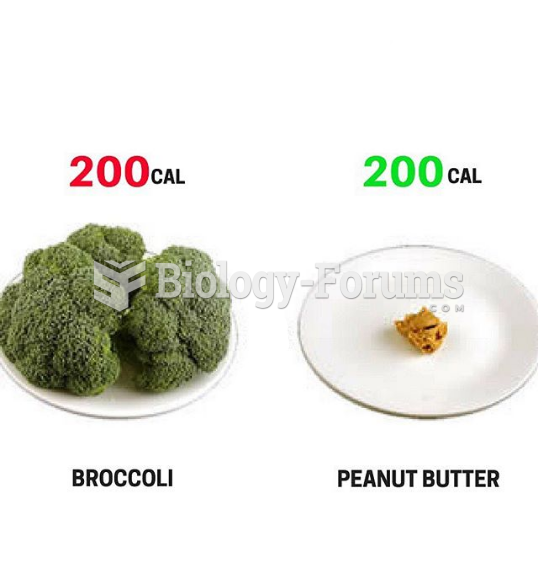|
|
|
Drying your hands with a paper towel will reduce the bacterial count on your hands by 45–60%.
Many supplement containers do not even contain what their labels say. There are many documented reports of products containing much less, or more, that what is listed on their labels. They may also contain undisclosed prescription drugs and even contaminants.
If you use artificial sweeteners, such as cyclamates, your eyes may be more sensitive to light. Other factors that will make your eyes more sensitive to light include use of antibiotics, oral contraceptives, hypertension medications, diuretics, and antidiabetic medications.
The first oral chemotherapy drug for colon cancer was approved by FDA in 2001.
There are more nerve cells in one human brain than there are stars in the Milky Way.







